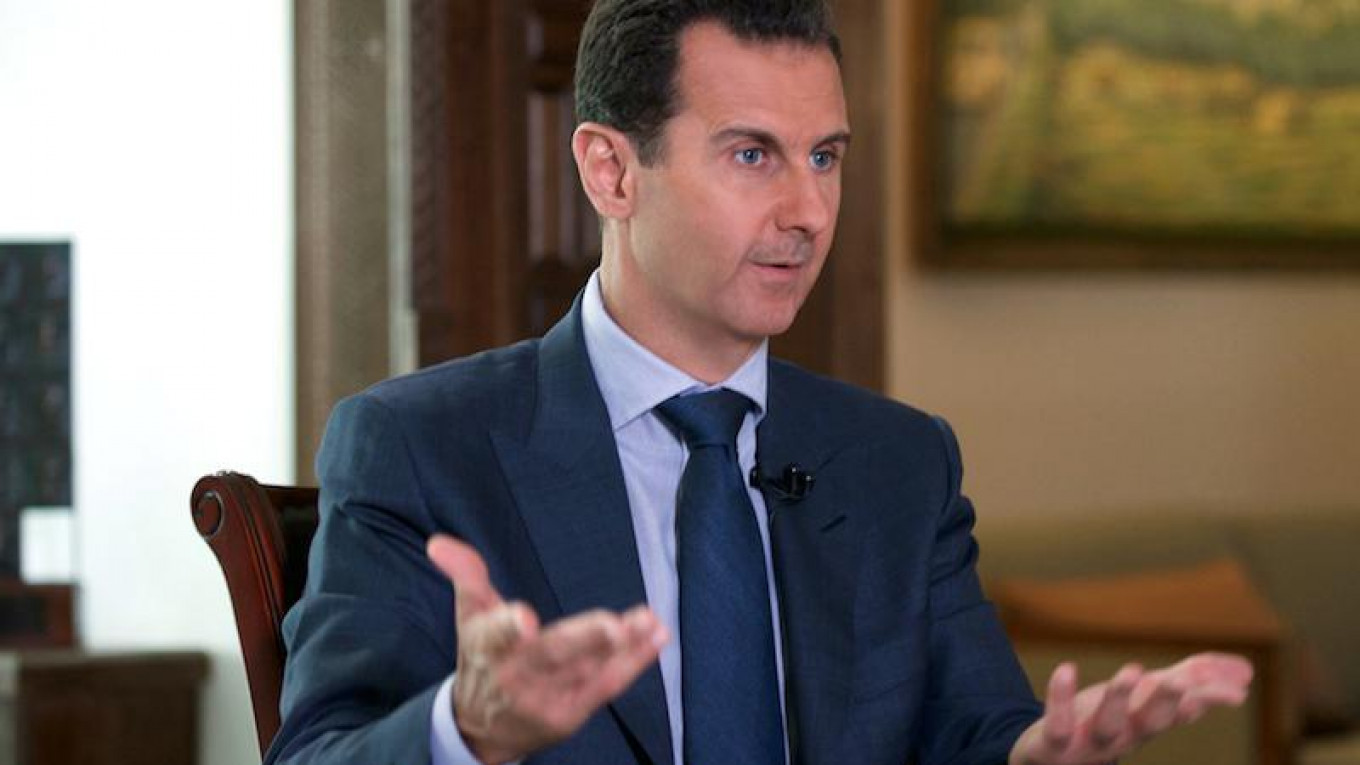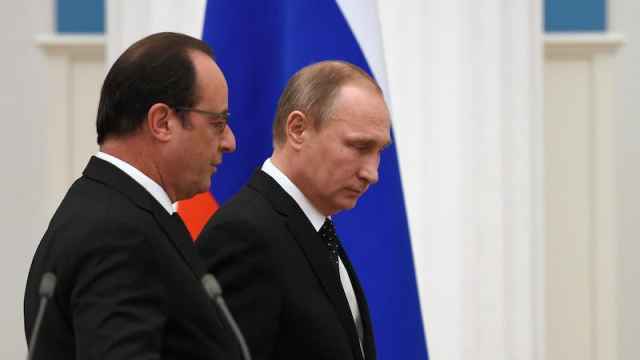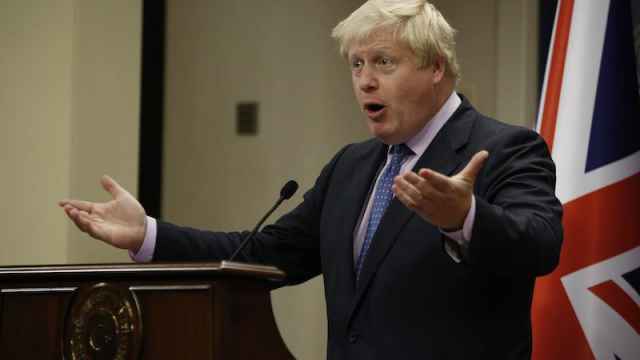Syria is only a pawn in the United States' struggle against Russia, Syrian President Bashar Assad has claimed.
Speaking in an interview with Russian tabloid Komsomolskaya Pravda, Assad said that the Syrian conflict had now become “a straight conflict between Russia and the United States.”
“I don't think that the West and especially the United States has stopped their Cold War, even after the collapse of the Soviet Union,” he said.
The interview poured praise on the Kremlin as a “great power” with “politics based on morals before interests.” The president also stressed a “long-running” alliance between Moscow and Damascus, maintaining that Russia had based military experts in the country for more than four decades.
“Syria and Russia are [sic] allies for decades now,” Assad said. “[The West thinks that], if we undermine the position of Syria, we can influence the Russians negatively.”
Israel and Saudi Arabia also came under fire, with Assad accusing Jerusalem of supporting “any terrorist who holds a machine gun and started [sic] killing and destroying in Syria.”
He also alleged that Saudi Arabia had offered Damascus aid in return for distancing themselves with Iran. “[The Saudis said that] if you move away from Iran and you announce that you disconnect all kinds of relations with Iran, we're going to help you,” Assad claimed. “Very simple and very straight to the point.”
Assad was aided in a special tirade against Turkish leader Recep Erdogan by Komsomolskaya Pravda journalist Daria Aslamova.
Aslamova claimed that Erdogan saw Syria as part of the “Ottoman Empire” and used terrorism as “his instrument of influence.”
Assad was keen to agree, claiming that “[Turkey] made ISIS [the Islamic State], they supported ISIS, they give them all the logistical support [sic] and they allow them to sell our oil through their borders.”
“Turkey's invasion [of Syria] is against international law,” he said.
Russia has been one of the few nations to back Assad's regime, supporting the Syrian Army primarily with air strikes since 2015.
The fate of President Assad as a Syrian leader has long been a contentious issue between Moscow and the United States, with Washington keen to replace Assad with a member of Syria's “moderate opposition groups.”
Assad has been repeatedly accused for violating human rights during his time in power, including using hospitals as “torture centers.”
Stephen Rapp, the former chief prosecutor of the United Nations court handling the Rwandan genocide, told The New Yorker magazine in April that investigators had “better evidence than we’ve had anywhere since Nuremberg” to prosecute Assad.
The president also been accused of using barrel bombs, a claim he has publicly denied.
The Syrian leader was keen to instead emphasize that he was meeting the needs of the people during the war, and even boasted of opposition figures in the Syrian parliament.
“Now, if you want to talk about political opposition, of course we have [sic],” he said. “We have figures, I don't have names now, but we have figures.”
When asked about the cafes and fitness centers full of young people “drinking coffee,” Assad stressed that the war was balanced with “everyday life.”
“You need to have balance between the war and between the basic needs of society, university, and the services that you should offer to the people,” he said. “If you don't try to live this life, the terrorists will defeat you, because that's their aim.”
The United Nations reported in April 2016 that an estimated 400,000 people had died in the Syrian civil war.
As of July 2015, the United Nationals
High Commission for Refugees said that some 4 million had fled the
country, while 7.6 million were internally displaced.
The Islamic State is a terrorist organization banned in Russia.
A Message from The Moscow Times:
Dear readers,
We are facing unprecedented challenges. Russia's Prosecutor General's Office has designated The Moscow Times as an "undesirable" organization, criminalizing our work and putting our staff at risk of prosecution. This follows our earlier unjust labeling as a "foreign agent."
These actions are direct attempts to silence independent journalism in Russia. The authorities claim our work "discredits the decisions of the Russian leadership." We see things differently: we strive to provide accurate, unbiased reporting on Russia.
We, the journalists of The Moscow Times, refuse to be silenced. But to continue our work, we need your help.
Your support, no matter how small, makes a world of difference. If you can, please support us monthly starting from just $2. It's quick to set up, and every contribution makes a significant impact.
By supporting The Moscow Times, you're defending open, independent journalism in the face of repression. Thank you for standing with us.
Remind me later.







